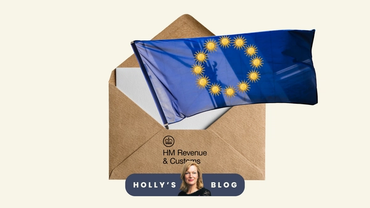Advice fees, SJP and Snap Sid
By Holly Mackay, Founder & CEO
18 July, 2025

This week, the country’s largest advice business – St. James’s Place – wrote to all clients with updates on its new charging structure, which will land in August. The verdict? Most clients will pay less and the costs are in line with what you’d expect.
What does financial advice cost?
Financial advice in the UK doesn’t come cheap. Fact. But with creeping taxes, confusing pensions and Inheritance Tax (IHT) angst, it can also pay for itself many times over. So, what does it cost? And is it potentially something for you?
The first cost to consider is the upfront or initial fee. This covers the work involved in going through all your assets, gathering everything together and creating your financial plan. Charges vary, but expect to pay between 1% - 3% for this as a one-off fee. SJP’s new costs now tier down from 3% for this. So not cheap. But not an outlier either.
Then you have the ongoing charges, payable every year, which have three parts to them.
First, the advice fee. This is paid to your adviser and covers monitoring your money, keeping up-to-date with changes to the rules and limits, keeping to the financial plan to optimise what you have, managing your investments and helping to navigate retirement. This typically ranges between 0.5% and 1%. SJP are charging 0.8%.
Secondly, there is also the product and administration fee which covers ISAs, pensions, and the online administration platform which gives you access to reports and ongoing valuations. This will typically range between 0.25% and 0.5%. SJP’s costs will now tier down from 0.35%.
And last but not least, there are the investment charges, for the funds you use to access the stock market and other investments. This really depends on what you pick, but fees range from around 0.2% for a bog standard low-cost global mix, to nearer 1% for fancy-pants complicated stuff. SJP’s average cost here is 0.52% which is fair enough.
By now, most of you will be foaming at the mouth, so let’s just add these three parts together for ease. The bottom line is that the ongoing all-in costs for financial advice in the UK are typically around 1.5% - 2%. And SJP’s new charges land them pretty much bang in the middle, with a reported average annual cost of about 1.7% all-in.
Personalised financial advice is a luxury service – on a £100,000 portfolio you will pay £1,500 - £2,000 a year, and for those with £1 million plus, you’re looking at more than £15,000 a year, often more. I once had an email from a grumpy millionaire telling me he could employ someone to work for him full-time for less than he was paying for advice. His strategy was to self-serve on a fixed-fee platform and to buy shares in Hargreaves Lansdown and SJP instead!
It’s a fair point. But then consider what you might end up forking out in unnecessary tax or losing in dodgy investment decisions – along with the stress – and decide what matters to you.
Cheaper advice options
There are fixed-fee advisers out there who can be a lot less pricey for wealthier people and some emerging digital advice services which are cheaper. For example, Charles Stanley offers fixed-fee IHT and pensions services, Evelyn Partners and Nutmeg offer fixed cost advice solutions, and Netwealth is a credible low-cost digital advice provider. If you have pretty straightforward affairs and you’re working and saving, you might be able to go it alone as many of our readers do, using your ISAs and pensions and a DIY platform.
As a rule of thumb, anyone with assets of more than £100,000 who is approaching retirement (within 10 years) and isn’t very clued up on all things tax, investments and pensions should at least investigate financial advice, in my opinion. Even if it’s only a one-off ‘MOT’. But the reality is that for people with less than £100,000 (and sometimes more) “full fat” financial advice is not an option today, because most advisers won’t take you on.
And more help on the horizon...
On Tuesday this week, the Chancellor used her Mansion House speech to say three things which will impact many consumers and our readers.
First, she wants more people to consider investing, and get over our British love affair with keeping too much in limp cash current accounts. Expect an industry-wide advertising campaign in the Spring of next year, promoting the benefits of investing. Older readers will remember the Tell Sid campaign of the Thatcher years, when everyone was encouraged to grab a share of British Gas as it listed on the stock exchange. What’s the 2025 equivalent? Snap Sid? Tell Siri?
Second, the industry is being encouraged to review how we talk to consumers about risk. When I talk at some banks, I ask their directors to imagine logging on to British Airways, only to be met with flashing red text warnings about how many flights result in acts of terrorism or injury, rather than glossy pictures of thin people skipping along beaches. We’ve got to do better at communicating the ups as well as the downs.
And third, we have something called ‘Targeted Support’ coming our way from next April. When – shock horror – financial firms will actually be able to write to us with useful tips, prompts and suggestions. Based on what ‘People Like You’ or people in your circumstances might consider.
All of these three are hugely positive, I think. And so – despite the many challenges and the broader economic doom and gloom – we can pause this week to note that advice fees in general are coming down, access to investing is opening up, and more help is on the horizon. Plus, the FTSE 100 broke through the 9,000 barrier, in a short-lived burst like me at the end of a boozy night when “Shake It Off” comes on, before collapsing onto a sofa again.
Rachel Reeves now just needs to pray that Donald Trump behaves himself, that global stock markets hold up, and rising unemployment figures don’t continue, so the FTSE doesn’t head into a nosedive just as we’re being encouraged to Snap Sid next April.
Have a great weekend, everyone.
Holly
Post a comment:
This is an open discussion and does not represent the views of Boring Money. We want our communities to be welcoming and helpful. Spam, personal attacks and offensive language will not be tolerated. Posts may be deleted and repeat offenders blocked at our discretion.






